#Ads
Driving Dystopia: IIHS Suggests Driver Monitoring Systems Need Improvement
The Insurance Institute for Highway Safety (IIHS) has cooked up a new ratings program to encourage automakers to implement even more electronic nannies, including the kind that watch your every move behind the wheel, because the current batch have been deemed inadequate.
“We evaluated partial automation systems from BMW, Ford, General Motors, Genesis, Lexus, Mercedes-Benz, Nissan, Tesla and Volvo,” IIHS President David Harkey said. “Most of them don’t include adequate measures to prevent misuse and keep drivers from losing focus on what’s happening on the road.”
Tesla Recalling Two Million Vehicles Over Autopilot Not Being Sufficiently Annoying
Tesla is recalling over 2 million vehicles in the United States that have been equipped with its Autopilot advanced driver-assistance system. Efforts come after years of media attention and federal safety regulators suggesting that the system posed safety concerns. The automaker is reportedly issuing an over-the-air update that will add new safeguards against distracted driving.
The National Highway Traffic Safety Administration (NHTSA) has been formally investigating the EV manufacturer for the last two years and believes Autopilot poses enough of a safety risk in its current format to push for the recall. That makes this the largest example in the company’s history, encompassing just about every Tesla model ever produced.
NHTSA Issues Initial Crash Report for Driver Assist Tech
In 2021, the National Highway Traffic Safety Administration (NHTSA) asked manufacturers to begin reporting vehicle accidents where Advanced Driver Assistance Systems (ADAS) and/or semi-autonomous driving aids were engaged. The agency was specifically interested in incidents where such systems were active at least 30 seconds prior to the crash, hoping it might shed some light as to the technologies at play while the industry continues to make it standard equipment.
Ford Decides Paying for Ads Is Stupid
Ford CEO Jim Farley has said he sees little reason for the automaker to bother using traditional advertising campaigns for electric vehicles. Considering how often I see the Ford logo grace whatever screen I happen to be peering into, this would seem to go against everything I’ve been conditioned to accept. However the company believes its EVs practically sell themselves already, with the executive noting that the Mach-E has been sold out for quite some time.
“I’m not convinced we need public advertising for [electric vehicles] if we do our job,” Farley said during Wednesday’s Bernstein Strategic Decisions Conference.
Toyota to Study Advanced Driving System Interactions
Toyota will be launching nine new studies over the next five years to improve automotive safety, specifically in relation to how drivers engage with advanced driving aids equipped to modern vehicles. While the press release to a back seat to the automaker receiving an award for hiring female engineers and a $400,000 donation to the National Environmental Education Foundation, it’s likely to have broader ramifications on the industry.
Despite launching a bevy of new assistance features over the past few years, manufacturers haven’t actually spent all that much time studying how they might impact the act of driving. Testing usually focuses on ensuring the system functions, with independent research being left to examine how electronic helpers might influence behavior from behind the wheel. Unfortunately, preliminary studies have suggested that they lull motorists into a false sense of security, potentially offsetting any legitimate safety advantages the relevant technologies provide.
IIHS Study Suggests Buyers of Used Vehicles Learn Less About Their Car
The Insurance Institute for Highway Safety (IIHS) is claiming that individuals shopping for a secondhand automobile end up learning less about the modern features lurking within their automobiles. Considering salespeople have meetings about how best to hype the advanced driving aids in new models, this one really shouldn’t have required a survey for the IIHS to piece it together. But the outlet appears to be attempting to link this alleged lack of knowledge to make claims that it’ll somehow contribute to the probably of used vehicles being involved in a crash.
“Used car buyers were substantially less likely than new car buyers to know about the advanced driver assistance features present on their vehicles,” stated IIHS Senior Research Scientist Ian Reagan, the author of the study. “They were also less likely to be able to describe how those features work, and they had less trust in them. That could translate into less frequent use, causing crash reductions from these systems to wane.”
IIHS Takes a Dump on Semi-Autonomous Cars, Then Impositions Drivers
The Insurance Institute for Highway Safety (IIHS) has said it is developing a new rating system to evaluate the existing safeguards found inside vehicles equipped with partial automation. Considering how commonplace advanced driving aids have become, you might be thinking this was long overdue. However, insurers were blindly praising advanced driving suites a few years ago — until they actually started testing them in earnest.
As luck would have it, there’s been mounting research supporting claims modern automotive tech encourages drivers to tune out and become distracted. While this wouldn’t be a big deal if the relevant features all functioned perfectly, the reality is that most are far less effective than advertised and practically all of them run the risk of being completely undone by inclement weather or poor lighting. Confusingly, the IIHS believes the best solution here is to make sure systems constantly monitor the driver to ensure the driver is constantly monitoring the system.
Let's Talk About a Terrible GMC Ad
We here at TTAC love it when there’s a bad car ad — because we get to rip it apart.
And now we have one from GMC — and no, it’s not the annoyingly Yuppie “I love it” people.
Stuck in Reverse? Tesla Abandons Radar, Restricts Features
Tesla is abandoning radar on its more affordable vehicles so it can deploy something that sounds like a vintage color motion picture process where the hues really manage to jump off the screen.
“ Tesla Vision” is the current process the company will use to collect and interpret the information necessary to operate semi-automated systems on the Model 3 and Model Y. But it feels like a step backward, if we’re being honest, and will result in cars that have “temporarily limited” abilities.
Opinion: Jeep's Super Bowl Ad Won't Unite Us
Last night’s Super Bowl got out of hand about as quickly as the newsman fight in Anchorman: The Legend of Ron Burgundy.
This meant that I, watching the game home alone since Super Bowl parties aren’t safe these days, turned to the ads to keep myself entertained. Sadly, with a few exceptions, most were as stinky as the game itself.
The ones that were supposed to be funny mostly weren’t, the emotional/inspirational ones were mostly fine but unmemorable, and the one that was so bad that I think it was intentionally terrible for the sake of virality was just annoying.
GMC Plotting Super Cruise for Sierra Denali
On Wednesday, General Motors announced plans to launch a version of Super Cruise on the 2022 GMC Sierra Denali modified to work with trailers. The hands-free driver assistance system (GM can’t call it “autonomous” because it technically isn’t) will stop being exclusive to Cadillac products and branch out into premium offerings from GMC and Chevrolet’s Bolt EV.
While unavailable until late in 2021, the next round of vehicles to be equipped with Super Cruise is supposed to see continued improvements to the system that allow for greater coverage. When the system originally launched on the Cadillac CT6 sedan, it was only eligible for use on specific divided highways for safety reasons. The greater emphasis on avoiding accidents was appreciated but it made the system seem more like a flashy gimmick than something any serious person would use on the regular. But GM has taken great strides to make sure that didn’t remain the case — hence the new trailer capabilities and ever-widening operating area.
IIHS Study Underlines the Perils of Driver Disengagement
It turns out there’s a name for the false sense of security provided by modern driving aids. According to researchers with the Insurance Institute for Highway Safety (IIHS) and the Massachusetts Institute of Technology’s AgeLab, the phenomenon is called “driver disengagement” and it’s assumed to be a contributing factor to roadways fatalities. The duo recently published a rather basic study examining how evolving automotive technologies might be eroding safety under the guise of progress.
Since we’ve been onto the perils and shortcomings of advanced driving aids since their introduction, it also provides us with another stellar opportunity to gloat. Heck, our criticisms go back far enough to predate any reputable research on the matter. We were just bitter cranks then, annoyed that the systems seemed unworthy of our trust despite constantly demanding it. But the IIHS said its latest testing found motorists frequently lose focus while utilizing features like adaptive cruise control and lane-keeping. This issue reportedly worsens the more familiar drivers become with the systems, which would be fine if they could be counted on for total effectiveness. Sadly, there’s been more than enough testing for us to know that’s not the case.
Bring Back National Cadillac Week
With no reason to risk going outside and industrial news at an all-time low, I’ve retreated into curiously dry hobbies as a way to maintain my sanity.
A substantial portion of my time has been devoted to parsing through old automotive catalogs and marketing materials. As someone who is notoriously difficult to shop for, dusty paperbacks that can easily be found for a nickel at any estate sale turned out to be ideal gifts… and I amassed a sizable collection. Over the weekend, I found myself going through vintage television spots — noticing they’re quite a bit different from the ads we encounter today.
While automotive marketing has evolved through the ages, there was a long stretch of time where companies basically just filmed a car driving around as a disembodied voice explained its strengths. This was back when advertisements featured voice-overs telling you that “ Quality is Job 1” at Ford, or a choir of voices joyfully acknowledging that they absolutely loved what Toyota was doing for them.
Today, I’m celebrating the 30th anniversary of a totally mundane promotion from 1990 called “National Cadillac Week.” While the free AVIS rental and cash back on your purchase weren’t unusual (then or now), I happened to encounter it exactly three decades after it originally aired — as if destined by fate. It was a glaring reminder of how much car ads have changed in that time period.
Industrial Trash Talk Between BMW and Mercedes
Cooperation between automakers is a good way to cope with rising costs but, if we’re being honest, it’s much more exciting when they don’t get along. Think about some of your favorite automobiles. Odds are good that they have a counterpart from another manufacturer they’re supposed to be warring with — Mustang vs Camaro, WRX STI vs Lancer Evolution, Camry vs Accord, Gremlin vs Pinto.
The best rivalries are between manufacturers, as those provide ample opportunity for snide marketing. If we had our druthers, automakers would be forced to compete in biannual gladiator-style competitions that open with scored trash talk. But dreams rarely come true; automotive bloodsports probably require a few years of heavy planning, too.
Luckily, industrial-grade insults aren’t something we have to wait for. To our delight, Daimler AG and BMW Group were going at it on Halloween.
Lincoln's 'Fresh Take' Campaign Traps Matthew McConaughey Inside Pink Mist
Ads for the 2020 Lincoln Aviator are scheduled to drop this Saturday, but those of us with internet access got to see them a day early. Lincoln’s “Fresh Take” campaign is a bit of a misnomer, however, because the person who’s chiming in on the new model is Matthew McConaughey.
Ford has used the Oscar-winning actor to showcase its premium products for years now, and this writer is not ashamed to say that he’s grown to love them. While not particularly substantive, they’re difficult to look away from. McConaughey muses about the vehicle in a calm, dreamlike haze. Occasionally looking into the rearview mirror before casually reapplying his attention to the always clear road ahead, he’s presumably talking to himself — but it’s really for our benefit.
And that’s why I’m so fond of them. In my mind, McConaughey is a polished lunatic — not quite a Patrick Bateman, but definitely unhinged. And it translates into comedy gold. Yet another viewer might see the ad and think, “Boy he’s handsome and calm — it’s like nothing is ever going to go wrong inside that car.”



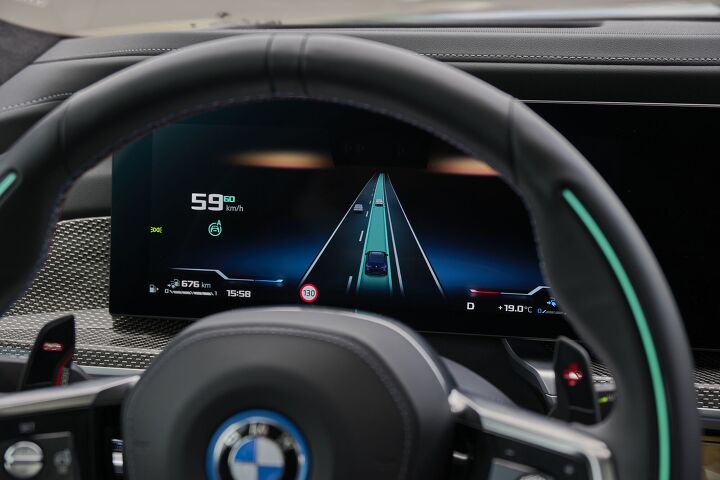

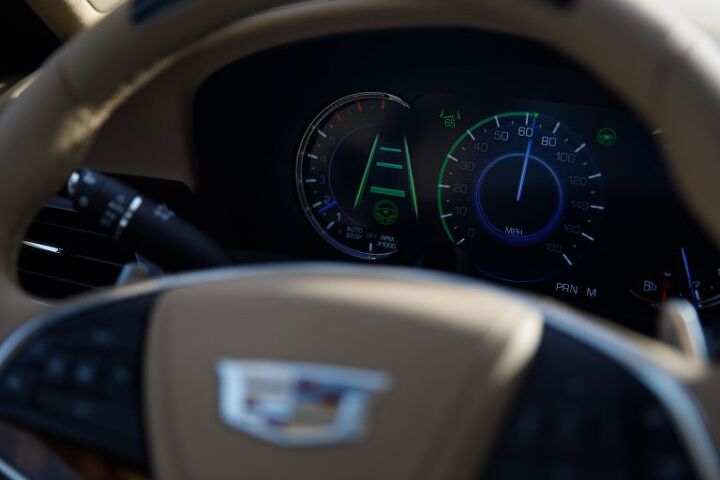


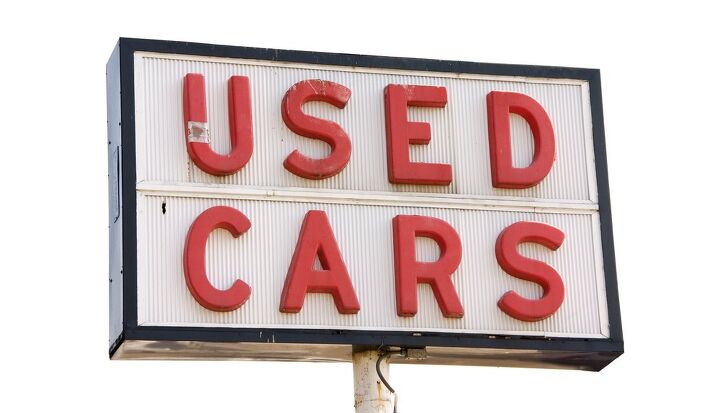
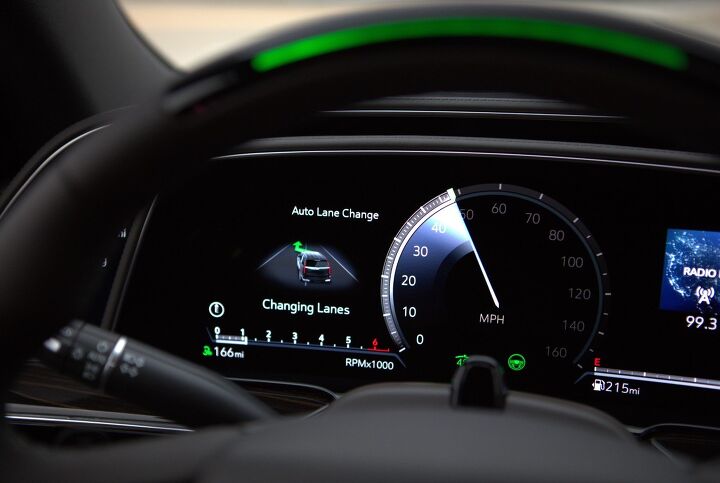
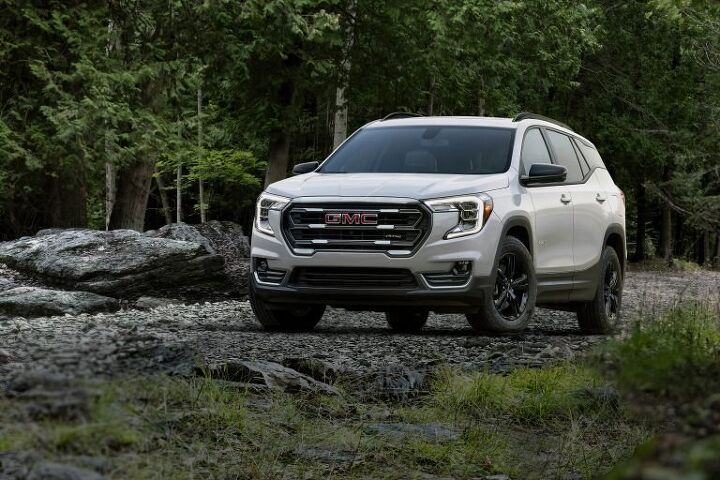




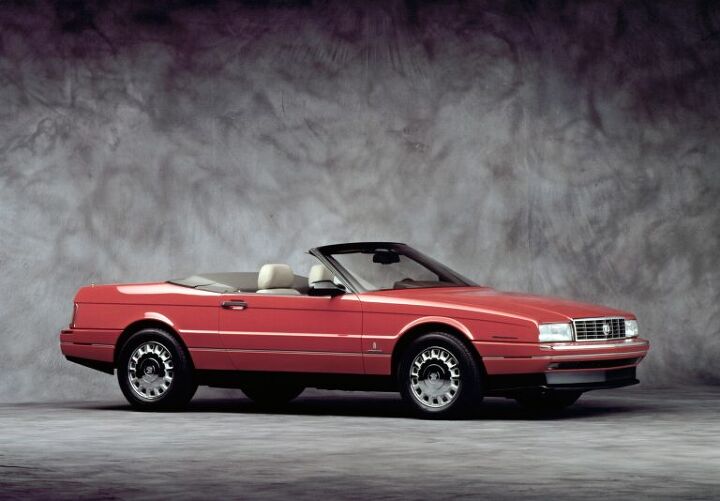
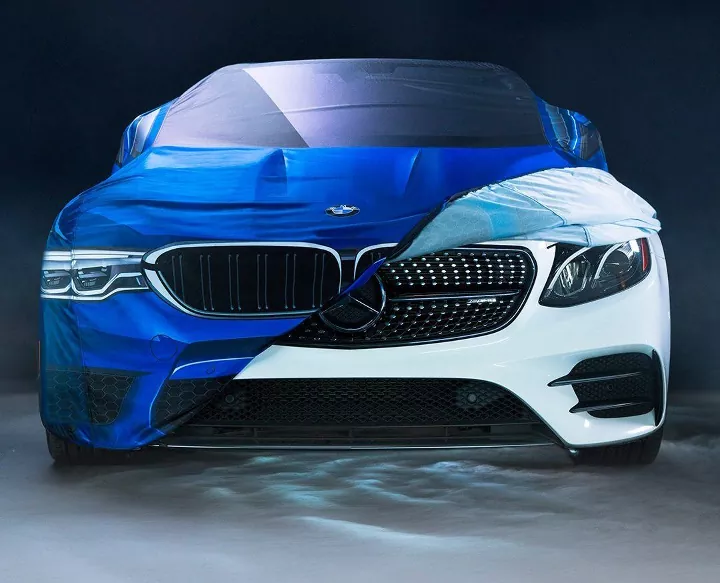
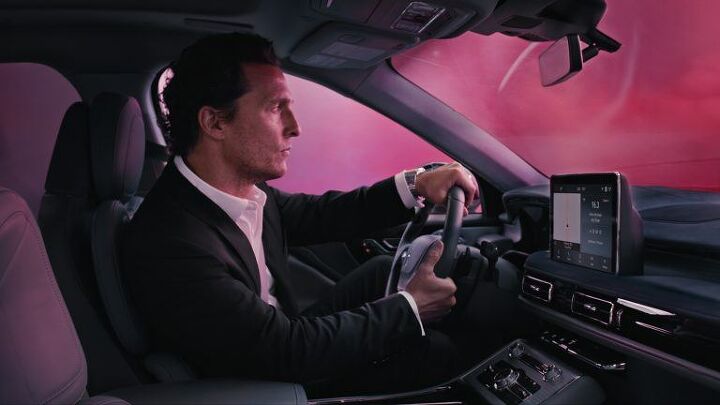












Recent Comments